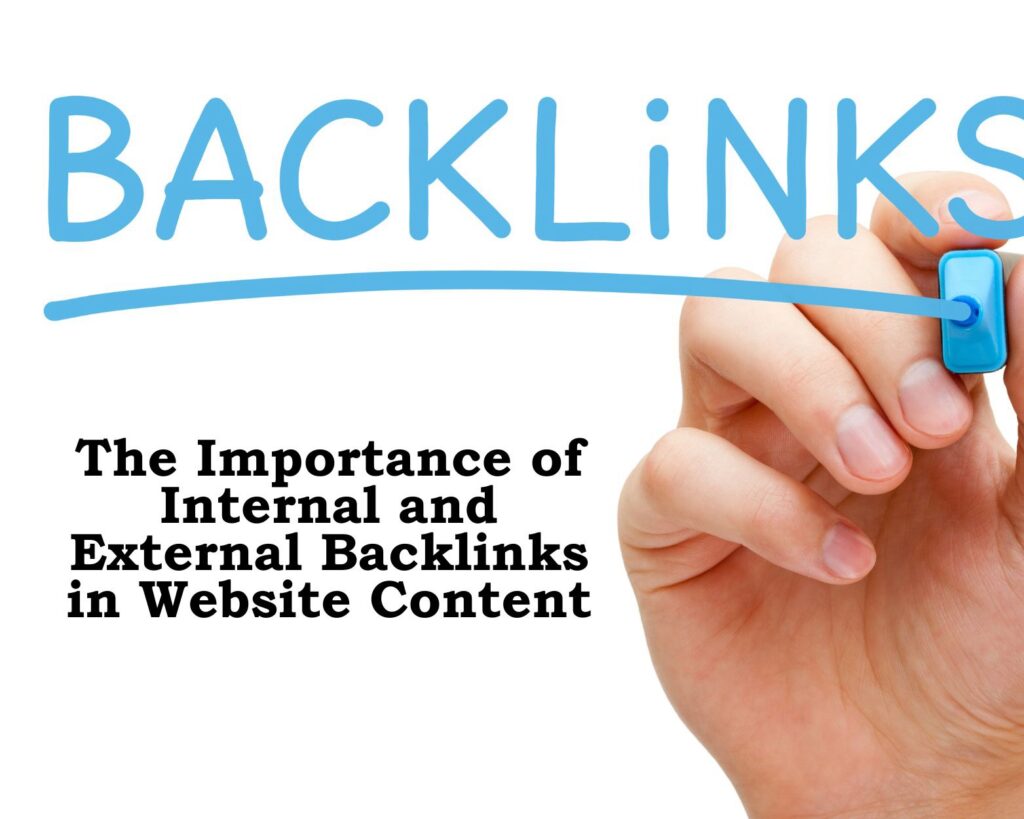In the world of Search Engine Optimization (SEO), backlinks play a crucial role in determining the visibility and ranking of your website on search engines like Google. Understanding the balance and significance of both internal and external backlinks is essential for any website owner or content creator. Let’s break down these concepts in simple terms.
Internal Backlinks: Enhancing User Experience and Site Structure
What Are Internal Backlinks?
Internal backlinks are links that connect one page of your website to another page within the same domain. They help users navigate your site and enable search engines to understand the structure and hierarchy of your content.
Why Do They Matter?
- Navigation: They guide users to relevant content, improving the overall user experience.
- Page Authority: By linking to different pages, you distribute page authority throughout your site, which can boost the ranking of individual pages.
- SEO Benefits: Internal linking helps search engines index your pages more effectively, understanding the context and relationship between different content pieces.

Best Practices
- Link relevant pages to each other to provide additional value to your readers.
- Use descriptive anchor text that gives an idea of what the linked page is about.
- Avoid overstuffing your content with internal links; keep it natural and user-friendly.
External Backlinks: Building Authority and Trust
What Are External Backlinks?
External backlinks are links from other websites that point to your site. They are crucial in building the credibility and authority of your website.
Why Do They Matter?
- Search Engine Ranking: High-quality external backlinks are a strong signal to search engines that your content is valuable and trustworthy, which can improve your site’s ranking.
- Referral Traffic: Backlinks from other sites can drive traffic to your website, increasing your audience base.
- Building Relationships: Acquiring backlinks often involves networking and building relationships with other site owners and content creators.
Best Practices
- Focus on getting backlinks from reputable, high-authority websites.
- Create high-quality, valuable content that naturally encourages other sites to link to you.
- Avoid using black-hat SEO tactics like buying backlinks, as these can lead to penalties from search engines.
The Balance Between Quantity and Quality
More Isn’t Always Better
While having a large number of backlinks can be beneficial, the quality of those links is far more important. A few backlinks from high-authority, relevant sites are worth more than numerous low-quality links.
Risk of Penalties
Search engines, especially Google, have become adept at identifying and penalizing sites that try to manipulate rankings through poor-quality backlinks.
Both internal and external backlinks are vital components of a successful SEO strategy. Internal backlinks enhance user experience and help search engines understand your site structure, while external backlinks build authority and trust. However, the focus should always be on quality over quantity. By adhering to best practices and creating valuable content, you can effectively use backlinks to improve your site’s visibility and ranking.
Q: How many internal links should I include on a page? A: There’s no set number of internal links that should be included on a page, as it largely depends on the length and content of the page. The key is to ensure they are relevant and add value to the reader. As a general rule, link to other pages whenever it feels natural and helpful for the user.
Q: Do external backlinks from any website benefit my site? A: Not necessarily. Backlinks from reputable, high-authority websites in a related field are more beneficial than those from low-quality or irrelevant sites. Backlinks from spammy or non-credible sources can actually harm your site’s SEO.
Q: Can I control which pages link to my website? A: You can’t directly control who links to your site, but you can influence it. Creating high-quality, valuable content increases the likelihood of reputable sites linking to you. If you notice backlinks from undesirable sources, you can disavow them using tools provided by search engines like Google.
Q: How do I get high-quality external backlinks? A: Focus on creating unique, valuable content that others want to share. You can also reach out to authoritative websites in your niche to guest post or suggest content that includes a link to your site. Networking and building relationships in your industry can also lead to more backlinks.
Q: Are internal links or external links more important for SEO? A: Both are important, but they serve different purposes. Internal links help with website navigation and establishing information hierarchy, while external links build credibility and authority. A balanced approach to both is key to a well-rounded SEO strategy.
Q: How do I know if my backlink strategy is working? A: Monitor your website’s traffic and search engine rankings. Tools like Google Analytics and Google Search Console can provide insights into how your backlinks are affecting your site’s performance. Look for increases in referral traffic and improvements in keyword rankings.
Q: Can too many internal links hurt my SEO? A: Overloading a page with internal links can be detrimental. It can overwhelm users and dilute the value of your links. Keep your internal linking natural and focused on improving user experience.
As an Amazon Associate we earn from qualifying purchases through some links in our articles.




